Table of Contents
What is Coursing?
Coursing was originally known as coursing hunting with hounds until it was banned or restricted in most countries in the 20th century. Later Coursing became a kind of canine sport – field trials with game, simulating the hunt for a wild animal and capturing it. Natural hides about half a meter long are used as a game, as well as artificial materials such as plastic bags or sponges, which are not subject to humidity damage.
The game moves along the set trajectory by means of a special mechanism, the so-called mechanical hare. This is a cord, on one end of which the “game” hangs. It is attached to a reel with an electric motor and is unwound and stretched across the field before the test.

The cord is wound onto rollers mounted on a flat surface – this forms a track with angles of varying degrees of difficulty.
Benefits of Coursing Trials
- Provides your dog with necessary physical, emotional and mental stimulation and keeps him in shape
- Pets energy is channeled in the right direction which prevents destructive behavior (destruction of furniture, disobedience);
- Common interest keeps pets and owners happy without having to race to its limits (especially important for owners of hyperactive hunting strains);
- It’s a spectator sport that offers thrill and entertainment.
Many people fear that after coursing their pooch will lunge at every rustling bag in the streets or attack and tear apart the owner’s washcloth, but that won’t be the case: your dog clearly distinguishes between “working” hunting and everyday reality.
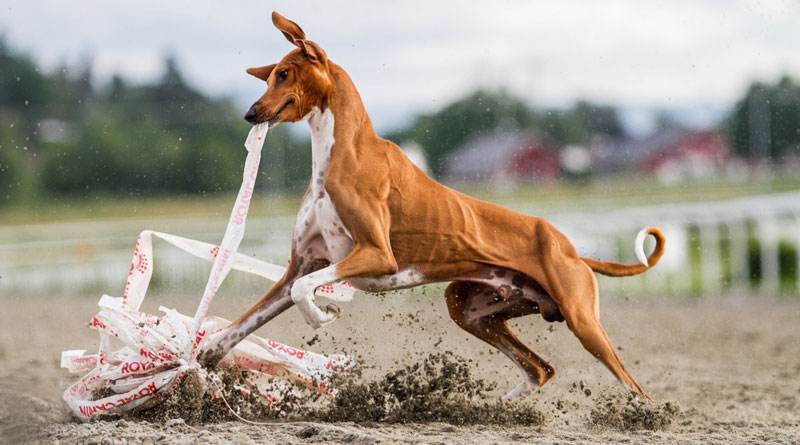
Lure Coursing Dog Breeds
The biggest fans of chasing the mechanical hare are hound breeds of dogs:
- Borzoi
- Afghan Hound
- Azawakh
- Basenji
- Cirneco Dell’Etna
- Greyhound
- Ibizan Hound
- Irish Wolfhound
- Italian Greyhound
- Pharaoh Hound
- Portuguese Podengo Pequeno
- Rhodesian Ridgeback
- Saluki
- Scottish Deerhound
- Sloughi
- Whippet
For them, lure coursing is a safe and effective option to realize their hunting potential. However, this sporting activity suits almost all of breeds, including mixed-breeds. The main thing is that exercise should not be contraindicated for the dog for health reasons (like heart deseases etc).
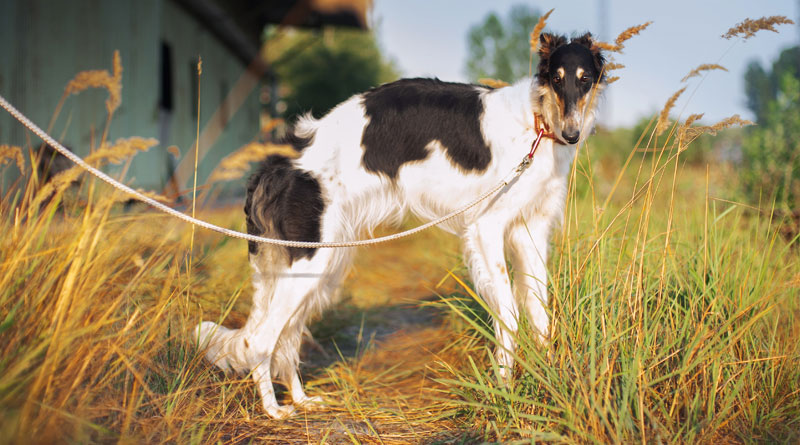
The only exception is for dogs of heavy weight breeds, especially those with short muzzles (molosses), which are not well suited for such trials. That’s not to say coursing is taboo, however, it’s better to start with supervised solo races.
Rules and Features of Coursing Races
Running after a mechanical hare comes in two types:
- Racing – running in a circle;
- Lure coursing itself – chasing with obstacles (turns, including sharp corners)
Length of one lure coursing trial:
- 400 – 700 m for whippets and basenjis
- 500 – 1,000 m for other breeds
In contrast to races, where first place goes to the pet that finishes first, the winning conditions in the coursing competition are more complicated.
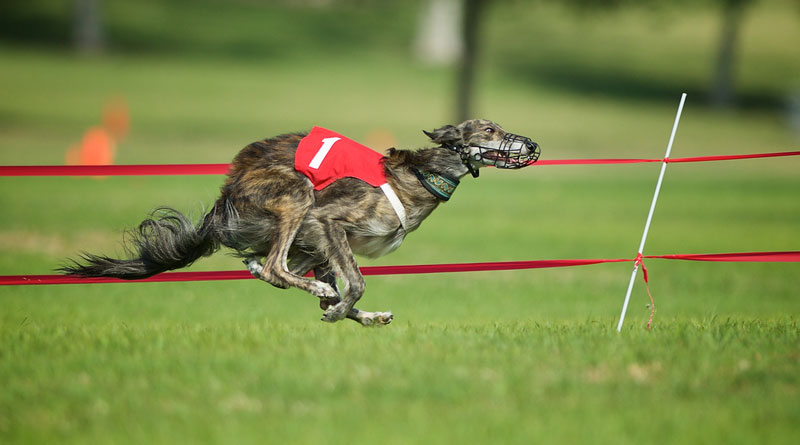
5 Criteria for Judging
- Speed. Measures quickness of reaction to change of trajectory and sudden removal of game. A “crawling run” is encouraged as the most effective style for retrieving lure. Particular attention must be paid to the “go-bye” technique, in which the dog going second overtakes the leading competitor.
- Empathy. The dog’s hunting excitement and eagerness to chase is rewarded, as well as its commitment, despite lapses (such as losing sight of game or missing a turn).
- Intelligence. An intelligent dog chases its lure in such a way as to cut off its path to a level road or shelter – a burrow, tall grass, bushes. The coursing shows which strategy the dog will choose: to follow the lure cleanly without changing its trajectory, or to methodically drive the game into the trap.
- Maneuverability. Ease and agility in changing trajectories and tackling tight turns on the course, and especially in catching the lure on the run.
- Stamina. The overall physical condition of the dog which has reached the finish line is also judged.
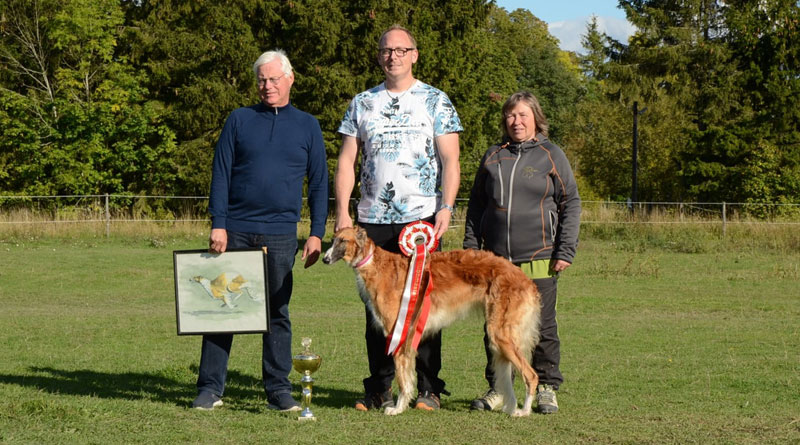
The maximum score for the trial is 100 points, with each of the five criteria scored on a scale of up to 20 points.
If there is more than one judge, the dog’s score can be summed from the scores of all the judges, or an arithmetic average is calculated.
Coursing Equipment for Dogs
- Running coat. Ideally, it should cover the chest and major muscle groups. This type of clothing can be purchased or custom tailored.
- Special running muzzles. Are necessary to prevent pets from biting each other in a fit of excitement. Also, sometimes the dog grabs the lure before the finish line and if the operator breaks the rope sharply, it might hurt his teeth, the muzzle will protect the pet’s jaw. Running muzzles don’t stifle movement – pets can open their mouths, breathe freely and even bark.
Do not wear harnesses or leashes – they can cause injury to the pet.
At What Age and How to Begin?
According to professional breeders, coursing doesn’t leave a dog uninterested, even if he doesn’t show it during his first training sessions.
Small and medium sized breeds can start coursing at around six months of age, bigger and heavier pups have a fully developed cardiovascular system later and can be trained from around 9 months.
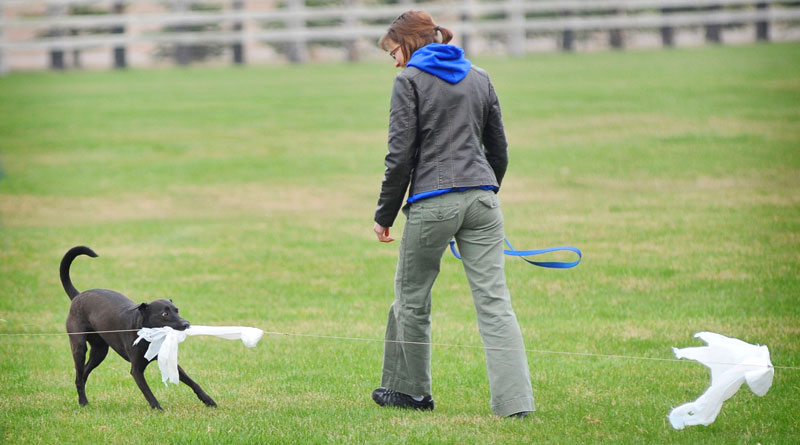
There is no age limit in coursing: no one would ban a dog from running as long as it is healthy and does not have any joint, heart, breathing or other problems. It’s better to start training individually with trainers who will give a load that takes into account the peculiarities of the dogs.
Preparations for Competitive Coursing:
- The dog’s claws must be trimmed to prevent injury.
- You should bring your pet’s favorite toy. Sometimes it’s tied to a tether instead of a lure if for any reason the dog does not want to run.
- In case of injury it is advisable to bring a first aid kit with bandages, peroxide and pain killers.
- It is recommended not to feed your dog the day before, especially if training in the morning. If the race is in the evening, only breakfast should be given, but if in the afternoon, it is sufficient to feed half the usual portion in the morning (but not meat), or better no food at all.
- It is advisable to bring a bowl and water.
- If this is your first event it’s wise to get introduced to other dogs and keep your pup on a leash.
- Jogging is recommended prior to the race to stretch the muscles, while walking upright after the race until his breathing returns.
Coursing Track Race with Irish Greyhounds
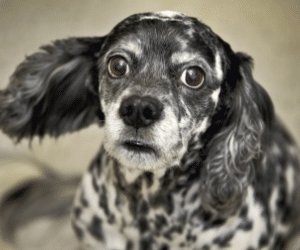

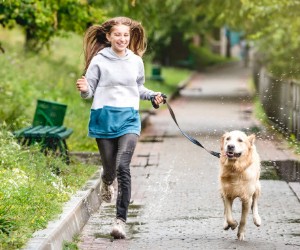

Thank you for discussing coursing, a canine sport that involves field tests with game and simulates the search for and capture of a wild animal. It keeps the dog in condition and gives him essential physical, emotional, and mental stimulation, as you said. My nephew has been looking for ways to manage the energy of the ridgeback he adopted. I’ll make sure to let him know about this and look into ridgeback lure coursing so they can give it a go.